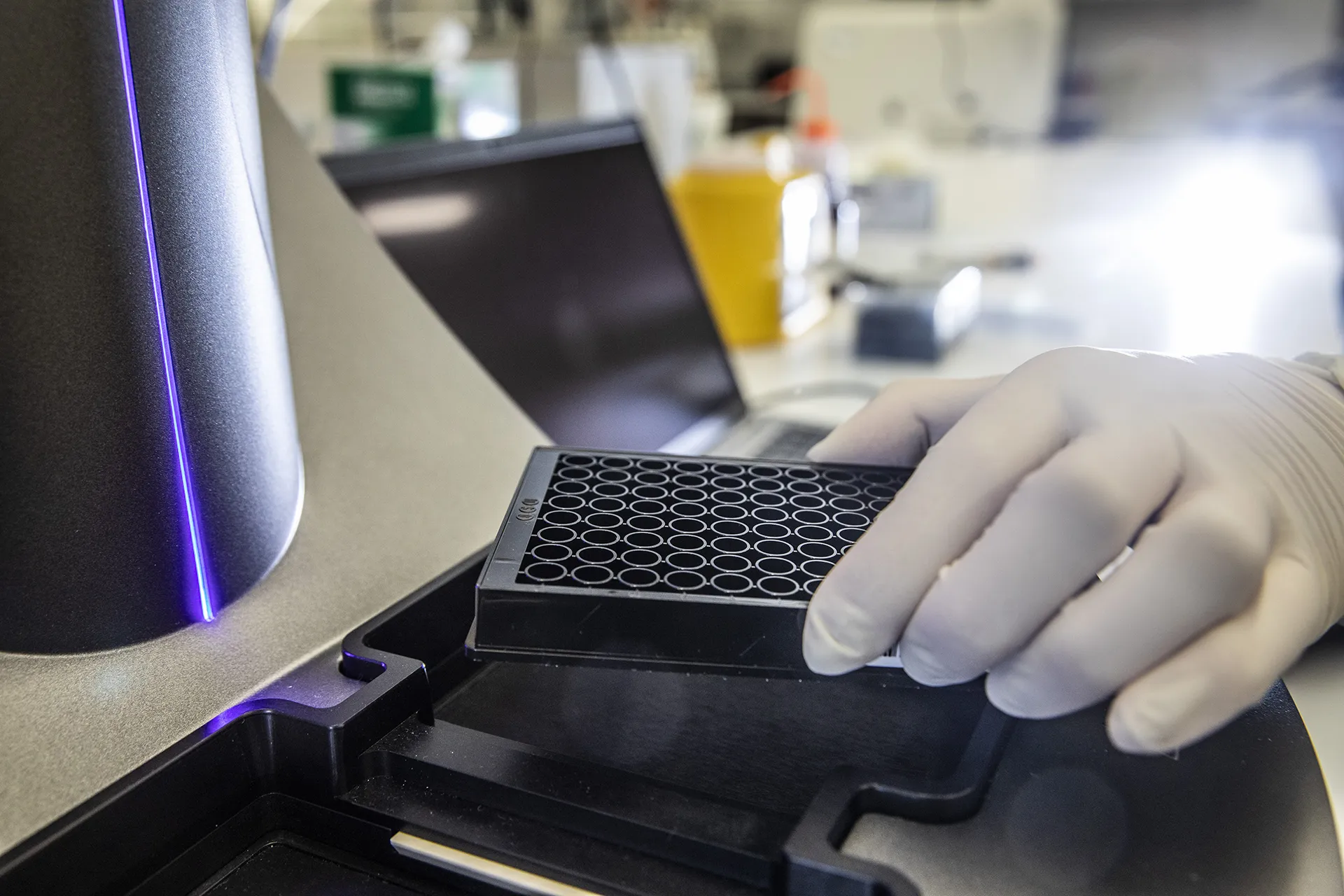Biomarkers as Tools to Assess and Predict Clinical Efficacy

A biomarker refers to “a quantifiable biological parameter that is measured and evaluated as an indicator of normal biological, pathogenic, or pharmacologic responses to a therapeutic intervention1”. In clinical trials, biomarkers may be used to identify populations for a study, monitor therapeutic responses, and identify side effects. The linkage between a biomarker and its intended use is key when choosing the measurement and validation method for quantifying the biomarker of interest.

During a trial of new drug candidates, biologics, or devices, biomarker levels are measured repeatedly over a period of time (e.g. during or after treatment). This provides supporting evidence that a drug produces a beneficial pharmacological response in humans, determines which doses should be used in clinical trials, and also helps in the understanding of a clinical trial outcome. Indeed, the ubiquity and power of biomarkers has seen their use as primary endpoints in clinical trials.
Pharmacodynamic studies can provide evidence of target engagement, the rate and magnitude of change over time, the relation of changes to an individual or patient at a genotypic level, as well as disease-related characteristics such as disease severity and disease duration. Pharmacodynamic/ response biomarkers are commonly considered monitoring biomarkers because of the nature of their evaluation.
Methods for analysing pharmacodynamic/response biomarkers include:
- ELISA
- Bio-Plex Luminex
- Flow cytometry
- MSD-ECL
- SIMOA
- LC-MS/MS

These techniques, all available at 360biolabs, are applied at different clinical trial timepoints to measure proinflammatory cytokine levels, T or B-cell populations (to assess the clinical benefits of a therapeutic), receptor occupancy (to confirm therapeutic target engagement), and measure circulating protein and chemical marker concentrations, to name a few.
In addition, molecular techniques to detect genetic biomarkers are often used to distinguish responders versus non-responders to treatment, or confirm the presence of a disease by measuring RNA or protein levels. At 360biolabs, we utilize RT-PCR, qPCR, and a diverse array of other molecular techniques to provide SNP analysis, HLA typing, microarray, genotyping and virus quantitation.
Understanding the impact of treatment outcome on both host and disease conditions is important for the efficient development of therapeutics and vaccines. At 360biolabs, we provide world class scientific expertise in a GLP-, GCP- and ISO-accredited environment for the assessment of a diverse range of biomarkers during clinical trials.
1. FDA-NIH Biomarker Working Group. BEST (Biomarkers, EndpointS, and other Tools) Resource. Silver Spring (MD): Food and Drug Administration (US); Bethesda (MD): National Institutes of Health (US), www.ncbi.nlm.nih.gov/books/NBK326791/ (2016, accessed 22 September 2017)
To learn more about our expertise in biomarker detection, identification and quantification.
